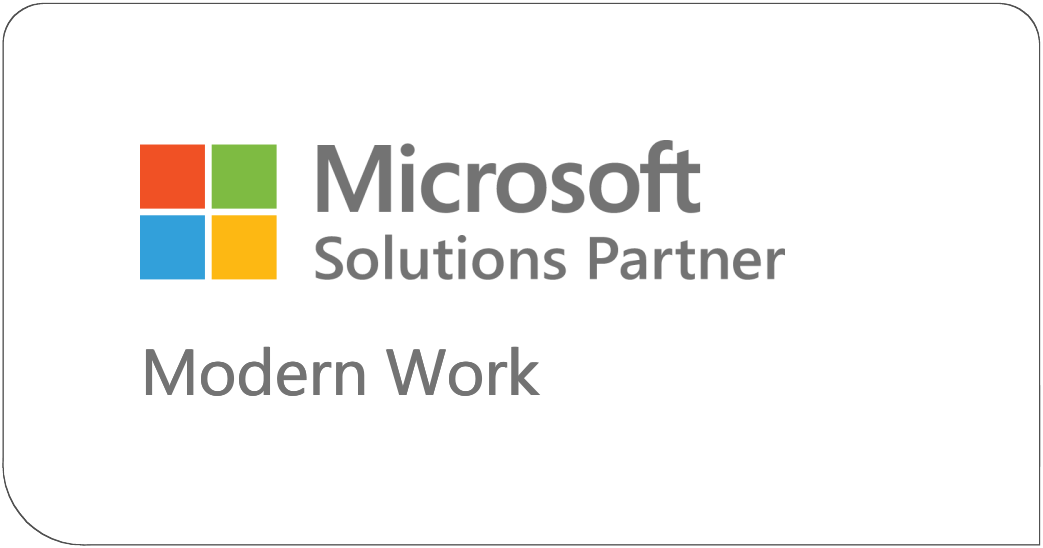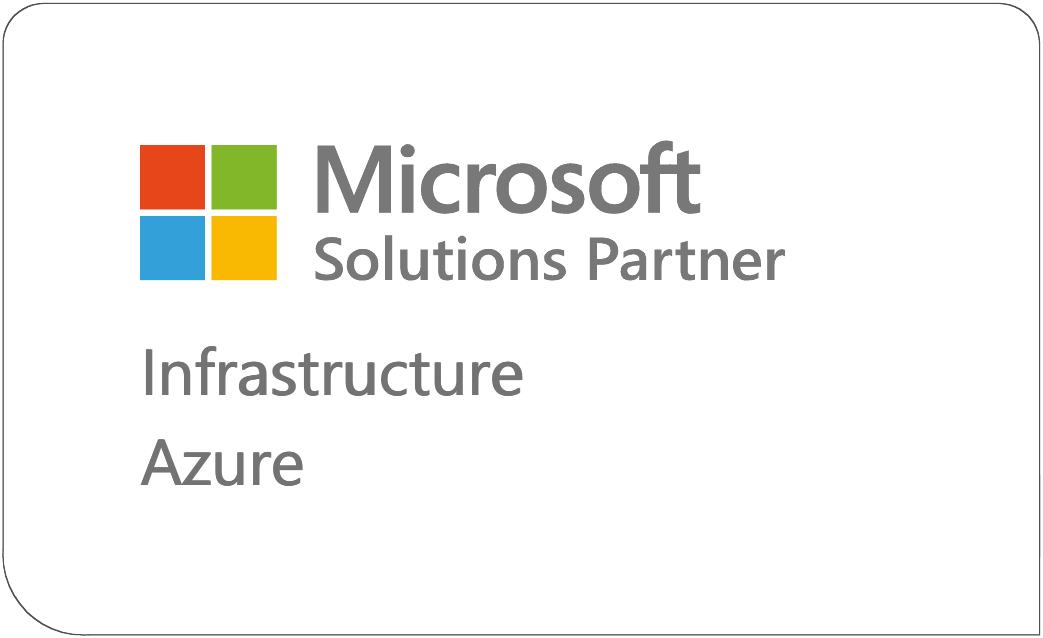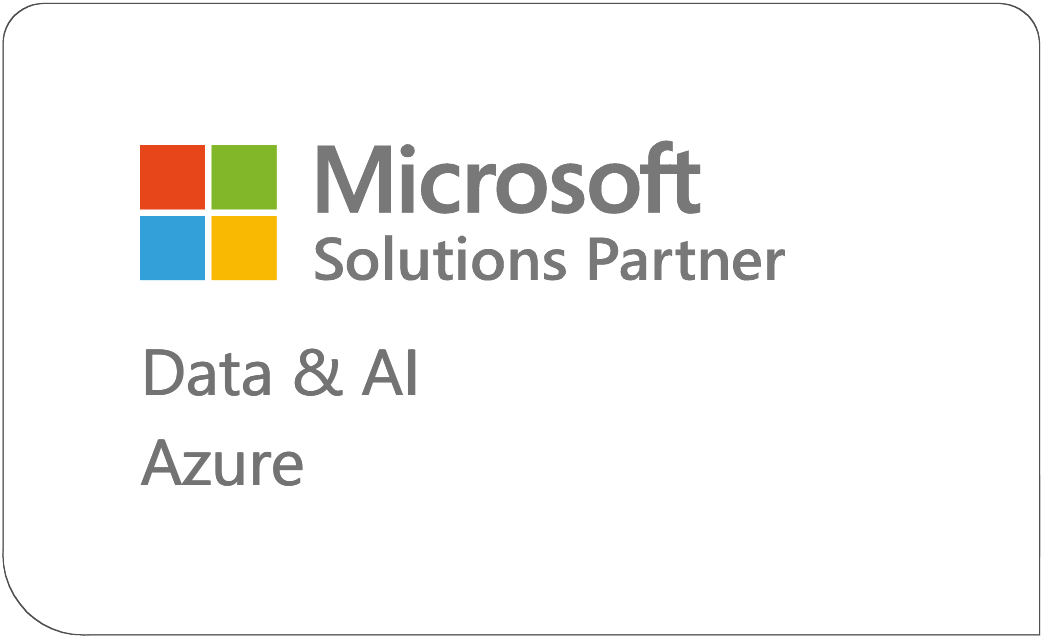Cloud Solutions
Simple, Scalable and Secure Cloud Solutions to Fit your Organisation
What is Cloud Computing?
Cloud computing is the delivery of IT services over the internet.
Cloud computing is constantly evolving, which is why we have a dedicated technical team who research and test the latest and best cloud solutions available. By hosting your existing systems and applications in the cloud, you minimise the risk of data loss and improve your ability to work remotely. All of these benefits reduce costs associated with aging infrastructure.
You won’t need to waste time familiarising yourselves with new technology. We provide advice and training for you and your teams on all of the cloud services we provide.
When it comes to cloud solutions, there is not a one size fits all model. We work closely with our clients to understand their business needs before creating an IT roadmap that complements your business’ objectives. Complete I.T. partner with some of the world’s leading cloud solution providers. We’re in the top 1% of Microsoft partners worldwide and have achieved 3 of the 6 new Microsoft Solutions Partner Designations in Modern Work, Infrastructure and Data & AI, ISO 27001 certified and experts in Microsoft 365 support, Azure and other cloud-based technologies like cloud telephony



Cloud Solutions for Business and Education Sectors
Cloud Solutions for Business
Cloud computing has become the norm within organisations of all sizes and in simple terms is the delivery of IT services over the Internet. We work with you to build a cost-effective roadmap, empowering you with solutions and tools to help you meet your goals.
Cloud solutions for business encompass a wide range of services and applications designed to enhance efficiency, agility, and competitiveness. These solutions leverage cloud computing technology to deliver scalable, flexible, and cost-effective resources that empower organisations across various industries. Key cloud solutions for business include Infrastructure as a Service (IaaS), Platform as a Service (PaaS), Software as a Service (SaaS), Data Storage and Backup, Collaboration and Communication Tools, and Analytics and Business Intelligence (BI) such as Microsoft Power BI.
Cloud Solutions for Education
Cloud solutions have revolutionised the education sector by offering innovative tools and platforms that enhance learning experiences, streamline administrative processes, and facilitate collaboration among students, teachers, and administrators. Key cloud solutions for education include Learning Management Systems (LMS), Virtual Classrooms, Online Assessment and Grading Systems, Data Analytics and Reporting, and Administrative Solutions.
Cloud-based collaboration tools, such as Google Workspace for Education and Microsoft 365 Education, enable real-time collaboration among students and teachers. These platforms offer features like document sharing, co-editing, video conferencing, and instant messaging, fostering interactive and engaging learning environments both inside and outside the classroom.
Microsoft 365 Business
Learn more about how Microsoft 365 Business can help your organisation to work more securely and collaboratively – use the productivity tools of Office 365 with advanced security and device management capabilities to safeguard your business.
Microsoft Azure
Move your business and infrastructure fully to the cloud with Microsoft Azure. It also has the functionality to allow hybrid operations if your business wants to move partially to the cloud while retaining some services, data or applications on-site.
Hosted Telephony
- A simple, cost effective telephony solution is finally here
- Simple licensing structure
- A mass of features
- One all-inclusive monthly cost
- Ergonomically designed, comfy headsets
- An intuitive user interface that people actually want to use
Benefits of Cloud Computing
Cloud computing offers a host of benefits, making it a foundation of modern business operations.
One of the primary advantages lies in the scalability it provides. Cloud solutions empower organisations to scale their computing resources up or down according to demand, ensuring optimal performance and cost efficiency.
So, if your company experiences sudden spikes in traffic or requires additional storage, cloud computing solutions offer the flexibility to adapt swiftly without having to make significant upfront investments in hardware infrastructure.
Cloud computing also enhances collaboration and accessibility for teams who are all working from different locations. With data and applications stored in the cloud, employees can access files, documents, and resources from anywhere with an internet connection, promoting remote work and flexibility within teams. This accessibility allows for seamless collaboration, as team members can work on shared documents and projects in real time, regardless of their location.
Cloud computing solutions streamline version control and ensure that everyone has access to the most up-to-date information, enhancing productivity and teamwork. The benefits of cloud computing extend beyond cost savings but offer organisations a strategic advantage in today’s interconnected world.

Disaster Recovery and Business Continuity
There are many options out there for disaster recovery (DR) and business continuity solutions, but we know that organisations just want a single, simple solution. Our Complete Recovery offering with Datto delivers both onsite and offsite backup, disaster recovery and business continuity. This technology removes the headache of traditional backup and recovery solutions such as tapes and USB drives.
Datto is a scalable and cost-effective Disaster Recovery solution that replicates your IT infrastructure onsite and to the cloud. In the event of a major outage or disaster, you can either restore or reboot quickly from a local image or even use the image in the cloud to continue to operate from other hardware while your infrastructure is re-established.
Complete I.T. are proud to be a top-tier Blue Diamond Datto Partner, meaning we have access to the best pricing, training, and support available.
How Cloud Solutions Help Mitigate Downtime and Data Loss
Cloud solutions help reduce downtime and data loss by leveraging high availability, redundancy, and Disaster Recovery features. By distributing data and applications across multiple data centres, cloud solutions providers ensure that services remain available even if one location experiences an outage. Automatic failover and real-time data replication further protect against interruptions, allowing businesses to recover quickly with minimal impact on operations.
Additionally, cloud services offer automated backups, continuous monitoring, and robust security measures to safeguard data. Regular backups and proactive monitoring help detect and address issues before they lead to significant downtime, while strong encryption and compliance tools protect against data breaches. These capabilities make cloud solutions a reliable choice for maintaining business continuity and ensuring data integrity.
Cloud Computing FAQs
What is Cloud Computing?
Cloud computing refers to the delivery of computing services, including storage, databases, servers, networking, software, and more, over the internet ‘the cloud’. It enables users to access and utilise resources without the need for extensive on-premises infrastructure. Cloud solutions offer flexibility, scalability, and cost-efficiency compared to traditional computing methods.
How Do Cloud Solutions Benefit Organisations?
Cloud solutions provide numerous advantages for many organisations. Firstly, they offer scalability, allowing organisations to easily adjust their computing resources based on demand. This scalability feature of cloud computing solutions enables organisations to avoid over-provisioning or under-provisioning resources, optimising operational costs. Additionally, cloud solutions enhance accessibility, enabling employees to access data and applications from anywhere with an internet connection, supporting collaboration and remote work capabilities.
Are Cloud Computing Solutions Secure?
Security is a top concern for businesses considering cloud computing solutions. However, reputable cloud service providers implement robust security measures to protect data and infrastructure. These measures often include encryption, multi-factor authentication (MFA), regular security audits, and compliance certifications. While no system is entirely immune to cyber threats, cloud computing solutions typically offer enhanced security features and expertise compared to on-premises solutions.
What Types of Cloud Computing Are There?
Cloud computing solutions come in various forms, including Infrastructure as a Service (IaaS), Platform as a Service (PaaS), and Software as a Service (SaaS). IaaS provides virtualised computing resources over the internet, including servers, storage, and networking components. PaaS offers a platform allowing developers to build, deploy, and manage applications without dealing with underlying infrastructure complexities. SaaS delivers software applications over the internet on a subscription basis, eliminating the need for users to install and maintain software locally.
Why Are More Organisations Using Cloud Solutions?
More organisations are adopting cloud solutions because of the significant benefits they offer in terms of cost savings, flexibility, and operational efficiency. Cloud solutions eliminate the need for large upfront investments in hardware and infrastructure, allowing businesses to scale resources on demand and pay only for what they use. This not only reduces capital expenditure but also lowers ongoing operational costs, such as maintenance, energy consumption, and IT staffing.
Additionally, cloud solutions enhance business agility by providing access to data and applications from anywhere, supporting remote work and collaboration. They offer faster deployment of services, enabling organisations to quickly respond to market changes and innovate without the delays associated with traditional IT infrastructure. The cloud also provides advanced security features, automated updates, and disaster recovery options, helping businesses maintain continuity and protect their data while focusing on core operations. These advantages make cloud solutions an increasingly attractive choice for organisations of all sizes.
How Can Businesses Migrate to Cloud Computing Solutions?
Migrating to cloud computing solutions involves careful planning and execution. With the help of an IT support provider businesses should assess their current infrastructure, identify suitable cloud services, and develop a migration strategy that addresses security, compliance, and performance requirements. Cloud service providers often offer migration tools and services to streamline the transition process. Businesses should then prioritise training and education for employees to ensure they can effectively utilise the cloud computing solutions and maximise their benefits.
How Do Cloud Solution Services Help Reduce Costs and Improve Efficiency?
Cloud solution services help businesses reduce costs by eliminating the need for significant upfront investments in hardware and infrastructure. With a pay-as-you-go cloud solutions model, companies only pay for the resources they use, avoiding waste and reducing capital expenditure. Additionally, operational costs are minimised as a cloud solution services provider like Complete I.T. handles maintenance, updates, and security, freeing businesses from the need to maintain in-house IT infrastructure. This leads to energy savings, lower maintenance costs, and more predictable budgeting.
Beyond cost savings, cloud solutions improve efficiency by enabling on-demand scalability and providing access to data and applications from anywhere. This flexibility supports better collaboration, especially for remote teams, and allows businesses to adapt to changing demands quickly. Automation of routine tasks, faster disaster recovery, and access to advanced technologies further enhance operational efficiency, allowing businesses to focus on innovation and strategic growth.

How Flexible Working Has Driven the Shift to Cloud Computing
Flexible working arrangements have become increasingly prevalent in modern workplaces, accelerating a shift towards cloud computing solutions. With the rise of remote work and distributed teams, organisations are seeking flexible IT infrastructures that can adapt to changing needs and support seamless collaboration, which can be achieved through cloud solutions as they offer businesses the agility and scalability required to accommodate flexible working arrangements.
One of the key drivers behind the adoption of cloud solutions for business is the need for remote access to critical resources. Employees working from various locations require reliable access to data, applications, and communication tools. Cloud computing solutions enable organisations to provide secure access to these resources from anywhere with an internet connection. Whether employees are working from home, on the road, or in different time zones, cloud solutions facilitate real-time collaboration and productivity.
As flexible working arrangements become the norm, companies need to adjust their computing resources in response to fluctuating demands. Cloud computing offers scalability on-demand, allowing businesses to rapidly provision or de-provision resources as needed. This flexibility not only optimises resource utilisation but also helps control costs by eliminating the need for upfront investments in hardware infrastructure.
The adoption of cloud solutions aligns with the evolving nature of work, enabling organisations to embrace flexible working practices while maintaining operational efficiency and competitiveness.
Read Our Cloud Solutions Case Studies









